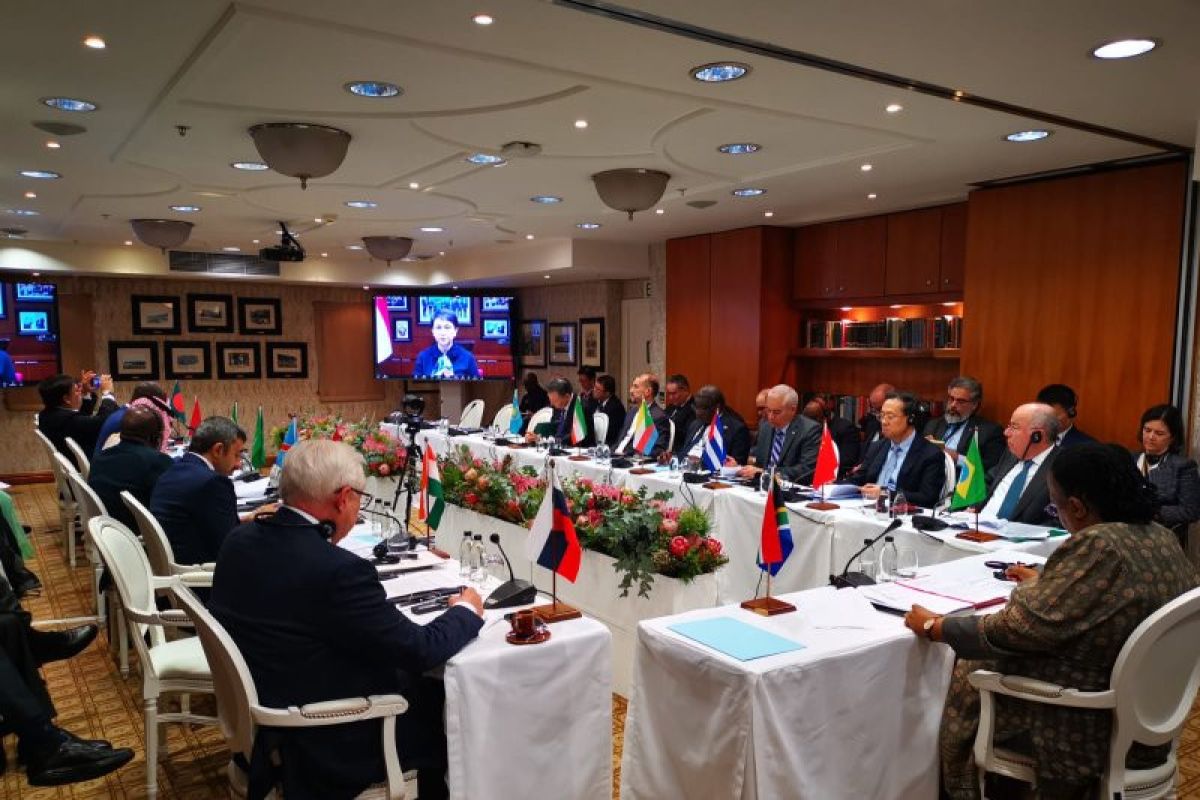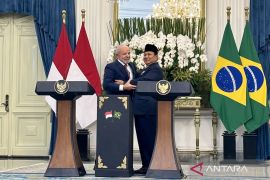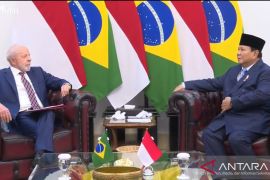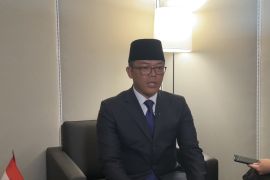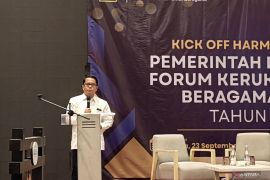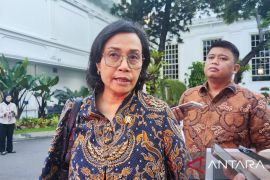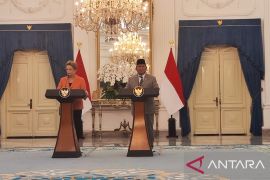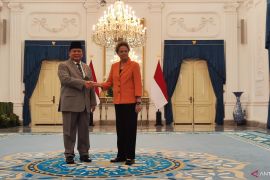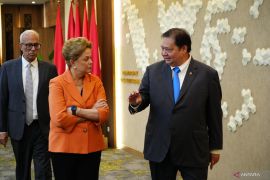BRICS is a bloc of emerging economies that include Brazil, Russia, India, China, and South Africa.
At the opening of the meeting, South African Foreign Minister Naledi Pandor said that the discussions would focus on opportunities for strengthening and transforming global governance systems and also explore synergies between BRICS and the G20 in a multi-polar world.
The meeting would also look for solutions for sustainable and inclusive global economic recovery and hoped to foster an environment of peace and development, he added.
The BRICS meeting came at a critical time and amid a challenging international situation.
Therefore, the BRICS nations — seen as a "symbol of change" -- were expected to send out a strong message to the world that old ways cannot address new situations.
The current global environment demands that the BRICS nations approach key contemporary issues seriously, constructively, and collectively.
In line with those expectations and demands, Indonesian Foreign Affairs Minister Retno Marsudi expressed the hope that BRICS will fight for development rights and economic justice in developing countries.
Minister Marsudi delivered her statement virtually during a meeting of the Foreign Ministers of the BRICS in Cape Town, South Africa, on June 2.
Besides Indonesia, the BRICS Foreign Ministers meeting was attended by 14 invited countries, including Saudi Arabia, Argentina, Bangladesh, Egypt, and the United Arab Emirates.
At the meeting, Marsudi said the world today has become more divided into polarized blocs. Thus, the rules-based world order has lost its meaning since each country is fighting for its own interests.
"If this trend continues, developing countries will suffer the most. We all have a responsibility to fix this unhealthy global order, and BRICS has the potential to be a positive force to this (condition)," she stressed.
Hence, she said the bloc must fight for the development rights of each country, especially developing countries, which have suffered economic injustices until now.
According to Marsudi, the Global South countries have the right to be a part of the world supply chain, free from trade discrimination as well as debt trap.
"Global South" refers broadly to the regions of Latin America, Asia, Africa, and Oceania.
The issue of Global South countries was also brought up by President Joko Widodo during the Hiroshima G7 Summit in May this year.
"I hope the BRICS would support these efforts and not become part of economic injustice," Minister Marsudi said.
The Indonesian Foreign Minister also invited the BRICS to strengthen inclusive multilateralism -- collaboration between several countries in pursuit of a common goal.
Global order must be reformed, but it has to take into account the voices and interests of developing countries, she added.
Marsudi emphasized that multilateralism can only be developed if all parties consistently respect international law without applying double standards.
Not without reason
Indonesia’s call to BRICS to play a role in fighting for economic justice in developing countries is not without reason.
The BRICS nations are expected to eventually rival the G7 on the global stage, in the opinion of Jim O'Neill, the chair of Northern Gritstone, an investment company based in the north of England, according to an interview on the future of the BRICS, which was posted on the official BRICS website.
O’Neill coined the acronym BRIC over 20 years ago in a seminar paper he wrote as the chief economist at Goldman Sachs to describe the rising economic power of Brazil, Russia, India, and China.
O'Neill argued that BRICS, economically, has already become a competitor to the G7 on the global stage.
"Economically, it already is. I think we have the data. Last year’s GDP (gross domestic product) data shows that collectively they (BRICS) are now, in PPP (purchasing power parity) terms, already bigger than the G7," he pointed out.
O'Neill also argued that by the end of this decade, China's economy is going to be pretty close in size to that of the US, while India is going to be close to overtaking Germany.
"So two of the biggest four economies in the world are two of the BRICS, despite how disappointing Brazil and Russia have been," he said.
He further argued that, politically, the G7 members' behavior, to some degree, has further elevated the importance of BRICS.
O'Neill also expressed doubt about the idea that the group of seven industrialized countries "can run the world."
"Because, first of all, their share of the world GDP has declined. Japan’s not shown any net increase in its GDP for 20 years. Italy virtually never grows. So this idea that they are some kind of thing for the whole world to follow (is erroneous),” he explained.
"And then on top of it, effectively, it’s a hostage to whatever Washington wants. So how do you solve the 'mammoth' global issues of our time with just those guys (G7 countries)," he added.
According to O'Neill, the main reason the BRICS was created is to suggest that the world needs a better form of global government than the G7.
Therefore, the vision of BRICS for partnership is expected to provide global leadership in a world fractured by competition, geopolitical tensions, inequality, and deteriorating global security.
South Africa will chair this year’s BRICS summit on August 22–24 in Johannesburg under the theme "BRICS and Africa: Partnership for mutually accelerated growth, sustainable development, and inclusive multilateralism."
Related news: Jokowi proposes three steps to prevent lost decade of development
Related news: BRICS must fight for economic justice in developing countries: Marsudi
Editor: Azis Kurmala
Copyright © ANTARA 2023
